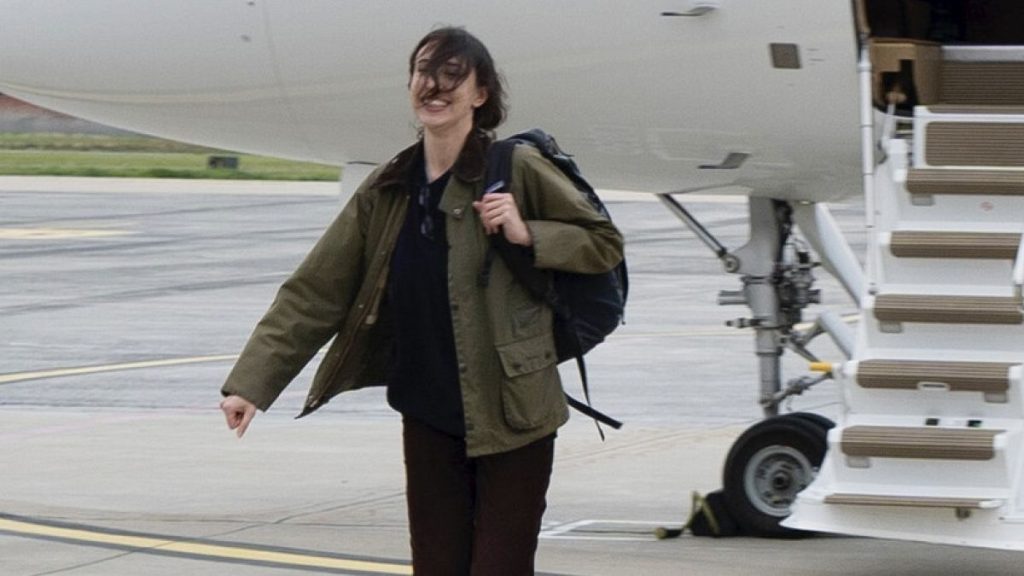Cecilia Sala, a 29-year-old Italian journalist, experienced a harrowing ordeal that began with her journalistic pursuits in Iran and culminated in weeks of solitary confinement in an Iranian prison. Her arrest on December 19th, just days after the arrest of Iranian businessman Mohammad Abedini in Italy on a US warrant, sparked speculation of a tit-for-tat political maneuver. While Iranian officials denied any connection between the two arrests, the timing raised concerns about Sala’s situation becoming a bargaining chip in a complex international legal wrangle. Abedini’s arrest stemmed from allegations of supplying drone parts used in a 2024 attack that killed three US service members in Jordan, an incident Iran vehemently denied involvement in. Sala’s detention, occurring shortly after her arrival in Tehran on a journalist visa, added another layer of complexity to the already strained relations between Iran, Italy, and the United States.
Sala’s weeks in solitary confinement undoubtedly took a toll, both physically and psychologically. The isolation and uncertainty surrounding her fate weighed heavily, amplified by the knowledge that her case had become a focal point of international attention. Back in Italy, her family and partner endured agonizing weeks of waiting, clinging to the hope of her safe return. The Italian government, under the leadership of Prime Minister Giorgia Meloni, worked tirelessly behind the scenes, utilizing diplomatic and intelligence channels to secure Sala’s release. This effort, unfolding against the backdrop of Meloni’s recent high-profile meeting with US President-elect Donald Trump, underscored the delicate balance of international relations and the potential implications for Sala’s case.
The news of Sala’s release brought a wave of relief and jubilation across Italy. Her arrival at Rome’s Ciampino airport, greeted by her family, partner, and a contingent of high-ranking officials, including Prime Minister Meloni, was a powerful image of homecoming and resilience. The emotional reunion with her boyfriend, Daniele Raineri, captured the profound personal impact of her ordeal and the joy of their reunion. Meloni’s presence at the airport, along with Foreign Minister Antonio Tajani and Rome’s Mayor Roberto Gualtieri, signaled the significance of Sala’s return and the government’s commitment to protecting its citizens abroad.
The Italian government’s efforts to secure Sala’s release were met with widespread praise, transcending political divides. Opposition leader Elly Schlein’s acknowledgment of the government’s role highlighted the national unity surrounding Sala’s case. This bipartisan support underscored the importance of prioritizing the safety and well-being of Italian citizens abroad, irrespective of political affiliations. Meloni’s direct communication with Sala’s parents throughout the ordeal, culminating in the news of her release, demonstrated a personal touch and a commitment to keeping the family informed during a time of immense stress and uncertainty.
Sala’s release was a significant victory for the Meloni government, demonstrating its ability to navigate complex international negotiations and achieve a positive outcome. It also served to bolster Meloni’s international standing, particularly following her meeting with President-elect Trump. This confluence of events solidified her image as a strong leader capable of effectively representing Italy on the global stage. The episode also highlighted the importance of diplomatic channels and intelligence gathering in resolving such sensitive international situations.
While Sala’s return to Italy marked the end of her ordeal, the broader implications of the case continue to resonate. The circumstances surrounding her arrest and detention raise questions about the role of journalists in conflict zones and the potential risks they face. It also underscores the complexities of international relations and the need for clear communication and cooperation between nations. The case of Mohammad Abedini, whose extradition hearing looms, remains unresolved, adding another layer of complexity to the already intricate web of legal and political considerations.














